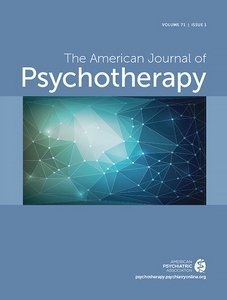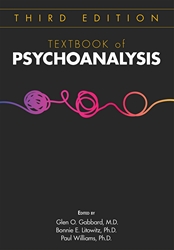Competency in Combining Pharmacotherapy and Psychotherapy, Second Edition
Integrated and Split Treatment
View Pricing
Description
Most clinicians endorse the combination of pharmacotherapy and psychotherapy as more effective and beneficial than each modality alone, but combining these treatments can be a complicated and highly variable process.
Competency in Combining Pharmacotherapy and Psychotherapy: Integrated and Split Treatment is designed to help psychiatrists at any stage of their career achieve competency in combining and coordinating pharmacotherapeutic and psychotherapeutic treatments for the benefit of their patients.
This guide, now in its updated, second edition, addresses both integrated (single clinician) and split/collaborative (multiple clinicians) treatments, discussing for each:
- The selection of medication and psychotherapy
- The patient evaluation and opening
- Sequencing
- Evaluating, monitoring, and supervising treatment
- Terminating and transitioning patient care
The book also offers a chapter—new to this second edition—that focuses on primary care access for mental health services in the context of integrated and split/collaborative care.
The rapid transformation of clinical care models in new health systems means that competence in integrated and split/collaborative care is absolutely vital for long-established clinicians as well as for psychiatric professionals in the early stages of their careers.
Competency in Combining Pharmacotherapy and Psychotherapy offers an unrivaled introduction to the complex process of combining medication and psychosocial treatments, clearly defining the competencies of combining two modalities. Psychiatric educators should note that this resource relates to all six main competencies of the Accreditation Council for Graduate Medical Education: patient care and procedural skills, medical knowledge, practice-based learning and improvement, interpersonal and communication skills, professionalism, and systems-based practice.
Contents
- Preface
- About the Authors
- Chapter 1. Introduction to Integrated and Split/Collaborative Treatment
- Chapter 2. Selection of Medication and Psychotherapy in Integrated Treatment
- Chapter 3. Evaluation and Opening in Integrated Treatment
- Chapter 4. Sequencing in Integrated Treatment
- Chapter 5. Selection of Medication, Psychotherapy, and Clinicians in Split/Collaborative Treatment
- Chapter 6. Evaluation and Opening in Split/Collaborative Treatment
- Chapter 7. Sequencing and Maintenance in Split/Collaborative Treatment
- Chapter 8. Evaluation, Monitoring, and Supervision of Integrated and Split/Collaborative Treatment
- Chapter 9. Termination in Integrated and Split/Collaborative Treatment
- Chapter 10. Primary Care and Split/Collaborative Care: Improving Access, Decreasing Costs, Improving Outcomes
- Appendix: Review Questions on Competencies Related to Integrated and Split/Collaborative Care
About the Authors
Michelle B. Riba, M.D., M.S., is Clinical Professor and Program Director of the Psychosomatic Medicine Fellowship; Associate Director of the University of Michigan Comprehensive Depression Center; and Director of the PsychOncology Program at the University of Michigan Comprehensive Cancer Center in Ann Arbor, Michigan.
Richard Balon, M.D., is Professor, Departments of Psychiatry and Behavioral Neurosciences and Anesthesiology; and Associate Chair for Education and Program Director at the Department of Psychiatry and Behavioral Neurosciences at Wayne State University School of Medicine in Detroit, Michigan.
Laura Weiss Roberts, M.D., M.A., is Katharine Dexter McCormick and Stanley McCormick Memorial Professor and Chair of the Department of Psychiatry and Behavioral Sciences at Stanford University School of Medicine, Stanford, California.
Related Products
Carousel Control - items will scroll by tabbing through them, otherwise arrows can be used to scroll one item at a time








